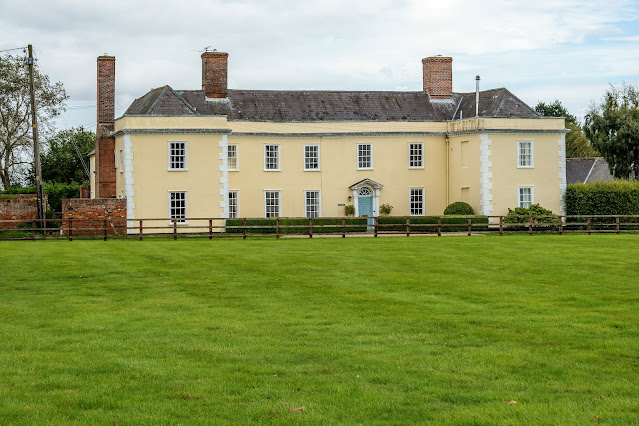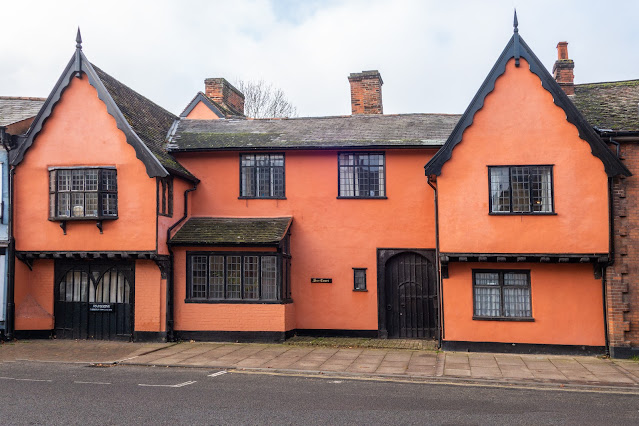Groton - The Winthrop legacy
John Winthrop was famous as the leader and founder of the Massachusetts Bay Colony in what is now the USA. He was born on 12 January 1588 to wealthy parents Adam and Anne Winthrop in Edwardstone. In 1613, when John was twenty-five, his father transferred the family holdings in Groton to him, so then he became Lord of the Manor at Groton.
He was a lawyer and one of the leading figures in founding the Massachusetts Bay Colony, the second major settlement in New England following Plymouth Colony. Winthrop led the first large wave of colonists from England in 1630 and served as governor for 12 of the colony's first 20 years. His writings and vision of the colony as a Puritan "city upon a hill" dominated New England colonial development, influencing the governments and religions of neighboring colonies in addition to those of Massachusetts.The Puritan population in England had been growing for several years leading up to this time. They disagreed with the practices of the Church of England, whose rituals they viewed as superstitions. An associated political movement attempted to modify religious practice in England to conform to their views, and King James I wished to suppress this growing movement. Nevertheless, the Puritans eventually gained a majority in Parliament. James' son Charles came into direct conflict with Parliament and viewed them as a threat to his authority. He temporarily dissolved Parliament in 1626, and again the next year, before dissolving it permanently in March 1629. The King's imposition of Personal Rule gave many Puritans a sense of hopelessness regarding their future in that country, and many prepared to leave it permanently for life in New England, and a wealthy group of leaders obtained a royal charter in March 1629 for the Massachusetts Bay Colony.
A fleet of five ships had departed a month previously for New England that included approximately 300 colonists led by Francis Higginson. However, the colony leaders and the bulk of the colonists remained in England for the time being to plan more thoroughly for the success of the new colony. In October 1629, the group who remained in England elected John Winthrop to be Governor of the Fleet and the Colony. Over the ensuing winter, the leaders recruited a large group of Puritan families, representing all manner of skilled labor to ensure a robust colony.
The initial group (Arbella and her three escorts) departed Yarmouth, Isle of Wight on April 8, the remainder following in two or three weeks. Seven hundred men, women, and children were distributed among the ships of the fleet.
The Winthrop Fleet was a well-planned and financed expedition that formed the nucleus of the Massachusetts Bay Colony. They were not the first settlers of the area; there was an existing settlement at Salem, started in about 1626 and populated by a few hundred Puritans governed by John Endicott, most of whom had arrived in 1629. Winthrop superseded Endicott as Governor of the Colony upon his arrival in 1630. The flow of Puritans to New England continued for another ten years, during a period known as the Great Migration.
Much of the church at Groton has been restored with funds donated by American Winthrop's and their friends. For that reason, the interior lacks some of the historic interest found in many medieval churches in this area of Suffolk, though it is, it must be said, in a generally good state of repair thanks to the American donations!
In a land of flint churches, Groton's church stands out more than most due to its honest simplicity. St Bartholomew's has interior walls of a fine Suffolk pink.
A window in memory of John Saville-Halifax (1804-1872) and his wife and daughter. He was rector here in 1865.
The large window of the 1875 pairs Moses handing out the Ten Commandments with Christ's Sermon on the Mount. It reads - In Memory of John Winthop Lord of the Manor of Groton 1618, first Governor of Massachusetts and Founder of Boston in New England 1630
The Groton Winthrop black mulberry is one of the oldest in Britain, thought to have been planted in about 1550 by Adam Winthrop, grandfather of John Winthrop. The Winthrop family maintains contact with the village and its historic tree. The tree is in a field known as The Croft, protected by a wooden fence.
Groton Hall, which is adjoining the church
John Winthrop held his first court as Justice of the Peace at Groton Hall in 1609. He became Lord of the Manor in 1618













Comments